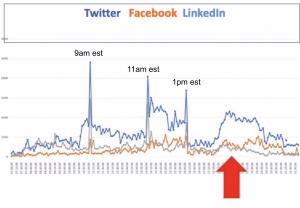Here they are:
1) Avoid large meetings
Large meetings waste valuable time and energy.
– They discourage debate
– People are more guarded than open
– There’s not enough time for everyone to contribute
Don’t schedule large meetings unless you’re certain they provide value to everyone.
2) Leave a meeting if you’re not contributing
If a meeting doesn’t require your:
– Input
– Value
– Decisions
Your presence is useless.
It’s not rude to leave a meeting.
But it’s rude to waste people’s time.
3) Forget the chain of command
Communicate with colleagues directly.
Not through supervisors or managers.
Fast communicators make fast decisions.
Fast decisions = competitive advantage.
4) Be clear, not clever
Avoid nonsense words and technical jargon.
It slows down communication.
Choose words that are:
– Concise
– To the point
– Easy to understand
Don’t sound smart. Be efficient.
5) Ditch frequent meetings
There’s no better way to waste everyone’s time.
Use meetings to:
– Collaborate
– Attack issues head-on
– Solve urgent problems
But once you resolve the issue, frequent meetings are no longer necessary.
You can resolve most issues without a meeting.
Instead of meetings:
– Send a text
– Send an email
– Communicate on a discord or slack channel
Don’t interrupt your team’s workflow if it’s unnecessary.
6) Use common sense
If a company rule doesn’t:
– Make sense
– Contribute to progress
– Apply to your specific situation
Avoid following the rule with your eyes closed.
Don’t follow rules. Follow principles.


